|
|
|
When we lived in the Middle East, we used to host 15-30 people for Thanksgiving dinner each year. We'd invite any and all Americans we were aware of who might be in the country on their own during the holiday: college students, missionaries, teachers, foreign aid workers, military personnel, businesspeople, and of course friends. Sometimes we had total strangers take us up on our invitation. We enjoyed sharing this most wonderful of American traditions with our fellow Americans living abroad and making new friends in the process. Believe it or not, I miss hosting a big crowd for Thanksgiving. One of the things I'm grateful for is all that I learned from the experience. In addition to learning tips and tricks for hosting a big dinner, I also learned to appreciate the value of a shared culture, the comforts of home, and the blessing of being surrounded by close family and friends. As I undertake my annual Thanksgiving preparations, I thought I'd share some of my favorite tips. Whether you're hosting a big group or an intimate gathering, I hope you find them helpful. Most, if not all, apply to any large or intricate holiday celebration you might be planning, not just to Thanksgiving. AFFILIATE DISCLOSURE: This post contains affiliate links. This just means that there are product suggestions included within the text. Should you click on one of the links and decide to make a purchase, I will receive a small commission. I only suggest products I love and have experience with that are directly related to the content in this post. Thank you for your support! View my Disclosure Statement for more information. Clean Out Your FridgeI wouldn't be an organizer if I didn't start by recommending a little, well, organizing. A week or so before Thanksgiving, take a little time to clean out your refrigerator. Toss out anything old, unsavory, or expired. Combine any duplicates (like those two open bottles of ketchup) into one container and organize the contents of your refrigerator. Leave as much space as possible for pre-prepped items which will then become leftovers. Use Stuff UpWhile you're cleaning out the fridge (and possibly the freezer), identify food items that need to be used. Plan meals accordingly for the days leading up to the holiday. Try to limit your leftovers in those days before the big day as well by prepping only what you need to feed your household at each meal. Clean HouseIn addition to clearing out the fridge, the week prior to the holiday can be used to get the entire house in order. Enlist the whole household in dusting, scrubbing, and tidying up. Assign each person a responsibility. Give the bathrooms special attention. If you are expecting overnight guests, make sure there are clean sheets on the beds, and the guest room is in order. Do Your Baking in AdvanceWhether you are baking a whole slew of pies and other desserts or just one for a small gathering, this is something that can be done at least one, if not two days in advance. I like to dedicate a day to baking. One of the benefits of this is that you aren't forced to use your oven to do double duty. If you are making homemade bread or rolls, doing so the day (or even the evening) before is also a good idea. Again, it frees up your oven for other things, and rolls are something that can be easily reheated right before serving. In fact, you can place them in the still warm oven while the turkey rests before carving. Prep Whatever Food You Can in AdvanceI always make my cranberry sauce in advance. It keeps well in the fridge, and it's one less thing to worry about on Thanksgiving Day. I also try to prep other sides in advance or at least prep the ingredients by chopping vegetables and prepping other ingredients. Then on the big day, all that needs to be done is the actual assembly and cooking. Stock Up on Holiday EssentialsNothing makes cooking more frustrating than not having the right tool for the job. Check out this assortment of my favorite tools for preparing and serving Thanksgiving dinner.
Thanksgiving Essentials: 1 - Bamboo Charcuterie Board Set 2 - Nonstick Roasting Pan 3 - Stainless Steel Turkey Baster with Syringe 4 - Waterproof Digital Instant Read Meat Thermometer 5 - 8 Piece Serving Utensil Set 6 - Bamboo Turkey Carving Cutting Board 7 - Bread Basket with Cover and Removable Liner Set the Table the Day BeforeThe most obvious benefit of setting the table in advance is that it frees up time on the actual day for other activities. Chances are, if you have a separate dining room, you only use it on special occasions. If this is the case, setting the table in advance won't disrupt your dining habits. If, however, you will be eating Thanksgiving dinner at the same table where you eat on a daily basis, explore other options for the 24 hours prior to Thanksgiving. Eat on barstools at the kitchen counter, use tray tables, set up a folding table, or have a picnic on the living room floor. If setting the table a full day before Thanksgiving is too disruptive (which might well be the case if you have small children), then use the time to prep table linens; set out dishes, glassware, and silverware; and prep your centerpiece so that after breakfast on Thanksgiving Day, all that needs to be done is to place things in their proper place. Splurge on a CenterpieceI highly recommend splurging on a pretty centerpiece for your Thanksgiving table. Make it yourself or buy something pre-made. It can be as elaborate or as simple as you like. When we were young and poor, I was happy to just have candles placed on my mother's lace tablecloth. Compared to our daily routine of sippy cups and plastic plates, it felt fancy. These days I add a festive store-bought bouquet since table setting isn't my forte. Make a Seating ArrangementIf you are hosting more than your normal household, I recommend crating a seating arrangement, especially if you are setting more than one table. This will prevent guests from milling about uncomfortably uncertain where they should be seated. It will also ensure that couples are seated together, and if there tends to be tension between certain members of your party, this will also help to prevent altercations. Placing simple name cards at each place setting adds an air of festive elegance to the atmosphere and makes guests feel special. Accept HelpThis applies both in advance and on the actual day of the event. Chances are if you are hosting guests, they will ask if there is anything they can bring to contribute to the meal. Say yes! This will ease your burden and make your guests feel involved and useful. Is there a part of the meal you struggle with or don't enjoy preparing? Ask if they'd be willing to make that item. You can also ask them if they have a favorite family recipe they'd like to prepare. If they aren't much of a cook, ask them to bring drinks, or ice, or an appetizer or dessert. Just check with them in advance to find out what they plan to prepare so you don't end up with two of the same dish. On the actual day of Thanksgiving, folks will be asking what they can do to help. Put them to work. No one likes to stand around feeling useless. Have them fill the water pitcher, serve drinks, chop vegetables, set prepared items on the buffet table, or any number of other tasks. The job doesn't have to be a big one to ease your workload and make them feel involved. Purchase Some Stuff PremadeDon't feel like you have to make everything from scratch. It's perfectly acceptable to buy your rolls or pies or even your turkey premade/cooked. It will not affect your guest's enjoyment in the least, but it may well save your sanity. Chill BeveragesIf you're short on refrigerator space (and you probably are), and the weather is cool enough (which it probably is), try setting drinks containers outside on a patio, deck, or porch. Choose someplace sheltered and make sure drinks are in a waterproof container. Of course, you wouldn't want to place drinks outside if there was a danger of them freezing. Another option is an unheated garage. If you don't want to brave (or risk) the elements, you can chill drinks by placing them in a cooler full of ice. Speaking of ice, I always like to bag the contents of my ice maker several days prior to an event. Empty the ice into a large, zippered baggie and place it in the freezer. Depending on how far in advance you think to do this, you can collect enough ice for both serving drinks and keeping them chilled. Plan for LeftoversMost of us love Thanksgiving leftovers ...in moderation. Too much of a good thing grows tiresome pretty quickly. Investing in a set of disposable food containers will allow you to share the wealth with your guests, so that they, too, can enjoy Thanksgiving leftovers, and you will not have to worry about growing tired of them. Plan for Little PeoplePlan activities in advance to keep children occupied while dinner is being prepared. Have a special movie for them to watch. Set up outdoor games if the weather is decent. Designate a teenager or adult to supervise children's activities and keep them occupied. Set up a Snack StationThanksgiving "dinner" is often served in the afternoon, after the typical lunch hour but before most people usually eat dinner. Since Thanksgiving requires tons of time and effort to prepare, most people don't prepare or consume three square meals that day, but the wonderful aromas wafting from the kitchen combined with the odd eating hours mean that everyone is hungry long before the big meal is ready. Setting up a snack station with simple but yummy tidbits like nuts, a fresh veggie charcuterie board, and/or crackers and dip outside the kitchen will allow family members and guests to graze to their hearts content without being underfoot in the kitchen. Use Real PlatesIf ever there was a time for real dishes, it's Thanksgiving dinner. If you don't have fine China, or if you don't have enough plates to serve all your guests, don't worry. An inexpensive set of plain white plates looks lovely with any decor. Serve Dinner Buffet StyleI started serving Thanksgiving buffet style when I was hosting large groups and couldn't fit everyone at one table. Even now that I am serving a smaller group, I much prefer setting up a buffet. Doing so allows me to have a pretty table scape without having to worry about how to fit all the food on the table. During the meal, no one has to pass heavy, and sometimes very hot, plates around. People can help themselves to seconds without disturbing one another and everything is easier to access. Buffets are also much easier for parents with small children as they can fill multiple plates at one time. Separate the Drinks from the FoodIf you're serving your meal buffet style (which I recommend!), designate a separate place for drinks away from the food. People often like to fill their plate, set it on the table, and then go back to fill their glass (or vice versa). Having drinks in a separate area allows them to do so without disrupting the flow of the food line. Use Your CrockpotKeeping some dishes warm while others are cooking is perhaps the biggest challenge of preparing a multicourse meal. Use your crockpot to keep mashed potatoes warm. You can also use your crockpot or Instapot to prepare certain dishes, thus freeing up oven and stovetop space. Serve the Littles FirstInvite parents of very young children to dish up their kids' plates before calling everyone to the table. Little people often won't eat food until it's lukewarm, so prepping their food in advance will allow it time to cool to their liking. In addition, it will save time when everyone else comes through the line. Relax and EnjoyThanksgiving is my favorite holiday, but there have been years when I didn't enjoy it as much as I would have liked because I allowed myself to become overburdened. I have enjoyed Thanksgiving most when I have had the company and help of loved ones throughout the day. I have enjoyed it least when I felt like I was slaving away in the kitchen while everyone else had a good time. A little thought and preparation can make a world of difference, not only in the experience of your guests, but also in your own enjoyment of the day. Stay SafeWhenever you're hosting others at your home, it's a good idea to take these safety tips for entertaining into consideration.
4 Comments
September is National Preparedness Month. With winter on the horizon and the status of the economy uncertain, it's a good idea to plan ahead. Creating a surplus of essential supplies is an important way to prepare for the unexpected. Having food and other needed items available can help ease you through any number of undesirable circumstances to include natural disasters, severe weather events, power outages, supply chain issues, or personal tragedies such as the loss of a job or an unexpected illness or injury. Building a surplus doesn't have to cost a lot of money. With careful planning and an organized approach, it's possible to stick to a budget while stocking up on needed items. The following tips have worked well for my family, and I hope you will find them useful as well.
Building a surplus starts with picking a time frame. At the minimum, it's important to have a 72-hour supply of food, water, medication, and other essentials in the event of a natural disaster, power outage, or severe weather event. Beyond that, I recommend starting small and building. over time Once you have a 72-hour reserve of necessities, focus on building a two-week supply. From there you might strive for one month, then three-months, then six-months or more. Your ultimate end goal will depend on your personal budget, needs, desires and available space. Whatever your end goal, having one in mind when you start will help provide a framework for an organized approach to building your surplus. To determine how much of a specific item you need in order to have a 1-month, 3-month, or 6-month supply, write the date on items when you open them. Use this information to figure out how long the item lasts in your household and then to estimate how many you will need to achieve your goal supply.
The danger of building a surplus is buying more than you can actually use before the items expire. There are several factors to keep in mind when determining how much of a surplus you need. These include:
Another important step in building a surplus is organizing your existing supply. Take some time to look through your pantry and other food storage spaces. Identify what you have on hand. Get rid of anything that is outdated or that you know you won't use and organize what's left. When organizing non-perishable food items, I recommend storing like items together so that it is easy to see how many of the same type of item you have on hand. Store the oldest items (those that will expire first) at the front to be used first and avoid unnecessary waste.
In addition to food, it's a good idea to stock up on other items you use regularly. This can include prescription and over-the-counter medications, toiletries and other personal hygiene items, cleaning supplies, paper products, and other consumable items.
You will be amazed how quickly, easily, and painlessly (budgetarily speaking) you can build a surplus by buying two replacement items for every one item you use. Use up a bottle of ketchup, buy two. Use up a bottle of shampoo, buy two. Use up a can of tuna, buy two. You get the idea. My husband and I began implementing this practice as newlywed college students, and we were impressed and pleased at how easy (and affordable) it was to stock our cupboards using this simple method.
This may seem like a no-brainer, but it takes effort and planning to get the best prices for the items you need. It means looking at weekly fliers (either on paper or electronically) and planning accordingly. You can decrease the amount you spend on building a surplus significantly by waiting for items to go on sale and stocking up on the brands and products you use when the price is right.
You probably know that certain items are on sale at certain times of the year. What you may not be aware of is the specifics of the annual cycle with regard to which items are on sale each month of the year. Knowing this can help you to plan ahead and stock up on specific items when they are at their lowest price of the year. Utilize Coupons, Rebates, and Savings AppsThese days saving on groceries and other essentials is easier than ever with the myriad of savings apps and rebate programs available. By spending a few minutes before and after you shop to see what special deals are available and then to scan your receipts can increase your savings significantly with coupons and rebates.
Often the larger the quantity, the lower the cost per unit. Admittedly, this is not always the case, but it is certainly the case much of the time and sometimes the savings are significant. Now that we are empty-nesters I sometimes choose to buy the smaller version of a product because the larger version won't get used before it spoils, but I've also discovered that in many cases larger quantities can be divided into smaller portions, thus preserving both the savings and the food item. Vacuum sealers are a great way to divide and preserve larger portions.
Each month we take any leftover money in our food budget and roll it over into another budget category that we call Grocery Surplus. We then use this money to add to our surplus of food and other essential items. This is also where my grocery rebate money is stashed. After saving in this manner for a few months, I recently had enough money set aside to buy a supply of freeze-dried foods for long-term storage. On another occasion, I spent my savings on 5-gallon water storage containers. Other times I've used the money to stock my freezer. AFFILIATE DISCLOSURE: This post contains affiliate links. This just means that there are product suggestions included within the text. Should you click on one of the links and decide to make a purchase, I will receive a small commission. I only suggest products I love and have experience with that are directly related to the content in this post. You can view my Disclosure Statement for more information. Thank you for your support!
It is not necessary or desirable to store a surplus of every item on your shopping list. With regard to food, I recommend that you begin by building a surplus of staple items that form the basis for much of your family's diet - things like flour, rice, oats, salt, sugar, vegetables and fruits (canned, frozen, or freeze-dried), meats (canned, frozen, or freeze-dried), etc. Next, focus on items your family uses regularly and/or in large quantities. Even if you have no interest in establishing long-term food storage, I recommend having at least one #10 can of powdered milk and powdered eggs because these will allow you to do a lot more with the food you have on hand in a situation where stores are closed, or perishable foods are difficult to obtain. I have tried a variety of freeze-dried foods, and the one thing I do not recommend is freeze-dried shredded cheese. It just doesn't reconstitute in a palatable fashion (in my opinion). Building a surplus of groceries and other essential items brings peace of mind both in emergencies and on a daily basis. Apply these tips to gradually and affordably increase your stockpile.
Welcome to part 2 of my series on how to save money on groceries and other essentials. In this post the focus will be on digital savings. I'm not even going to pretend like I know every single app or extension available for saving digitally. Instead, I'm just going to share some apps and extensions that have worked well for me as well as some suggestions for how to use these tools in tandem to increase savings.
Most grocery and pharmacy chains have a savings app. Some are definitely better than others (Kroger, Target, Walgreens), but each offers ways to save money on groceries and other essentials. To utilize the savings available on a store's app, you will have to have an account. When you sign up for an account, you will be issued a shopper's card, and it is generally through scanning your shopper's card that you are able to access available savings. My favorite local grocery store is a Kroger affiliate, and I LOVE their app. I'll share my favorite features, many of which are common across the best grocery store apps. If you have not done so, I encourage you to explore your store's app for these (and possibly other) features. Store App features to look for:
In addition to your store's savings app, another source for digital coupons is the coupons.com app. Link it to your store's loyalty account, and load coupons directly onto your shopper's card. If you prefer paper coupons, you can print those as well. It is not uncommon for my grocery store savings app to have 300+ coupons available. That's a lot to look through, s0 I recommend utilizing the search and sorting features when downloading digital coupons. Use the search feature to look for coupons for specific items. Search by brand name (Tide, Kraft, Tostitos) or by the type of item (toothpaste, sour cream, peanut butter). Searching for coupons for the items you plan to buy is also a good way to avoid the temptation to buy something you normally wouldn't just because you have a coupon. When it comes to sorting, I like to begin by adjusting the settings to show me the newest coupons first. You can also sort for popular coupons, coupons that are expiring soon, and coupons that are deemed the best value. Additionally, I like to look at a category called "Special Savings" which includes the weekly digital deals and other special or limited offers. My favorite special offers include:
Receipt scanning apps seem almost too good to be true. You use your phone's camera to snap a photo of your receipt and upload it to the app, and in return you get a reward in the form of a rebate or gift card. You may be wondering how these companies can afford to pay you for simply sharing your receipt with them. The answer is that they get paid for the information they collect. They're essentially conducting market research, and companies are interested in the demographic information and other pertinent data they randomly collect. Be assured that they are not collecting or sharing private information; they are tracking shopping trends.
Several receipt scanning apps offer rewards for sharing the app with others. In such cases, both the sharer and the person signing up receive a bonus either in the form of cash or points (which can be redeemed for gift cards). In the section below, I will share my invite link where applicable. Should you choose to use my link to sign up for an app, I will receive a reward - and so will you!
In my experience, receipt scanning apps take two basic forms: cash back and points apps. I have only tried a handful of these apps personally, so I'm just going to share the ones that have worked well for me.
Ibotta Referral Code:
gbuobim Use the referral code when signing up and get $10 when you redeem your first offer:
Fetch Referral Code:
NGYU5A Use the referral code and receive a minimum of 2,000 additional points when you scan your first receipt.
ReceiptJAR Referral Code:
SHERS9H38 Use the referral code and receive an additional 200 points when you scan your first receipt.
Shopkick Referral Code:
KIND185754 Use the referral code and receive 250 bonus kicks when you sign up for Shopkicks.
If you're going to use multiple receipt scanning apps, you will want to develop a system for scanning receipts. I do it as soon as I get home from the store once I'm done putting my purchases away, but I have a friend who saves her receipts and scans them all once a week. Whatever method you choose, I recommend scanning them in a sort of assembly line. Start by lining up your receipts on the kitchen counter or some other flat surface. Open an app and scan all of the receipts to that app. Then open another app and scan all of the applicable receipts to the second app, and so forth. This makes it easy to keep track of which receipts you've scanned to which app.
Online extensions are buttons you add to your browser's taskbar.
Rakuten Referral Link:
Use this link to join Rakuten, and we will both earn $30 when you make your first purchase of $30 or more using the app or online extension.
While any one of these digital savings tools will help you save money on groceries and other essentials, combining them can yield even more impressive results. My top three tips for maximizing savings are as follows:
Maximizing your savings on groceries and other essentials using digital tools takes a bit of organization, but it is well worth the effort. I personally love finding new, effective ways to save money, and I get a real sense of satisfaction from getting a good deal. I hope you find these suggestions useful, and I invite you to share your favorite ways to save in the comments section below.
Supply chain issues, government policies, international relations, and a myriad of other factors have been wreaking havoc on prices globally in recent months. With inflation on the rise, I've been searching for new and meaningful ways to save money on groceries and other essentials, and I've discovered several tools and practices that really work. Some of the ideas I will share are ones I've been practicing for years and others I've implemented more recently. As with most things, an organized approach is the best approach when it comes to saving money on food and other necessaries. This post is the first in a two-part series. Part 1 will focus on non-digital ways to save. Part 2 of the series will concentrate on how to use apps and other digital tools to save money on groceries and other essentials. Take Charge of Your FinancesMy husband and I have been budgeting our money since day one of our marriage. This practice has allowed us to set and achieve numerous financial goals. To this day, we account for every penny we spend. We always know exactly how much money we have, where it is, and how we want to spend (or save) it. I cannot recommend creating and implementing a budget strongly enough. In my opinion, it's the single best practice for ensuring financial stability. It allows you to live within your means, build a financial cushion, and save for the future. If you aren't using a budget, I encourage you to create one today. Clean Out Your CupboardsKnowing what you have in your pantry, freezer, and refrigerator can be as important as knowing what you have in the bank when it comes to saving money on groceries and other essentials. I highly recommend organizing and decluttering your various food storage spaces. I have recently completed this process, and in doing so I learned some things. For instance, I discovered several items I had forgotten I had, most of which were beginning to show their age. I've made an effort to work them into our meals, and I've been happy with the results, both because we've had some yummy meals and because I was able to avoid unnecessary waste. Did you know that nearly 40% of all food in America is wasted each year? Preventing food waste by knowing and using what you already have on hand will save money as well as food. In addition to preventing waste, identifying what you have makes meal planning easier and prevents over-purchasing items you already have on hand. Plan a MenuSpeaking of meal planning, it is an excellent way to save money, time, and resources while improving the quality of your family’s meals. Planning (and executing) a menu will help you save money by purchasing only what you need to prepare the meals on your menu. Shop with a ListShopping with a list is an easy way to save money on groceries and other essential items. Expecting that you will remember what you need is a good way to ensure that you will have to make multiple trips to the grocery store, and we all know that trips to pick up one or two items often end with two or three bags full of groceries. Worse still, shopping with no plan at all in mind is certain to result in impulse purchases which rarely meet an actual need and are often unfriendly to the budget. Utilize What You HaveAnother good way to save on food is to make the most of what you have. This can take several forms. To begin with, it's economical to use what you already have in your cupboards. Take inventory and plan meals around what's in the pantry or freezer, supplementing as needed. Another way to save is to eat leftovers. This can sometimes be uninspiring, but it can also be awesome. Have fun jazzing up leftovers by reimagining them. For instance, leftover baked chicken can become the key ingredient in a soup, a salad, or a casserole. This is true for just about any protein. If you know a particular recipe is going to result in more leftovers than you want to consume in just a few days, try dividing the recipe in two (or more). Enjoy half now and freeze half for a day when you're short on time or groceries. Now that my kids are grown and out of the house, I do this a lot. Buy GenericWhen I was first married, I bought generic brands at the grocery store because that was all I could afford. Now I buy them because I'm content with their quality and see no need to spend the extra money for virtually the same product. Believe it or not, most generic products are packaged in the same facility using the exact same ingredients as their name brand competitors. They just get a different label at the end of the packaging process. Pick a ProductAs an organizer, I can tell you firsthand that tons of money is wasted every year on product experimentation. This is true of everything from hair styling gels to laundry detergents to snack foods. Something catches our eye, and we bring it home. As often as not, we discover that we aren't actually a fan of that particular product. The result is bathroom cupboards, bedroom closets, and kitchen pantries full of unwanted consumable items. Once you find an affordable product that you like, stick with it. Don't waste money experimenting once you have a favorite that meets your needs and fits your budget. Picking a product makes it easy to always get the best price for your preferred item. If you know what you want, then you can watch for sales and coupons and stock up when the price is right. Shop the Clearance SectionMany stores have a designated clearance section, to include some grocery stores. At my favorite grocery store, there is an alcove behind the egg case where you can find day old breads and other bakery items for half price. In addition, there is a wall of shelves full of various odds and ends. The selection changes constantly. If you have a large freezer, discounted meat can be a great deal. Often the cuts are a day or two from their expiration date (which is really the date by which the store has to sell them, not necessarily an indication that they are about to spoil). If you plan to freeze them and use them as soon as they are thawed, they pose no real danger. Shop Discount StoresMany communities have discount stores where you can save tons of money on groceries and other essentials like clothing, office supplies, or household items. Often these stores get their merchandise from big name retailers. The items they offer may be nearing their expiration date or be damaged in some way, or the company many simply have ordered too many. I recently checked out such an establishment in my community. I came away with several reams of Amazon Basics printer paper. The only thing wrong with them was that the outer packaging on every ream was torn. The paper inside was completely unharmed. I paid less than $3 per ream. On Amazon.com the same paper costs $7 per ream. Now if I could just find a similar deal on printer ink! Shop LocalSpeaking of communities, purchasing locally produced goods is another potential way to save on food and other essentials. In particular, there are great deals to be had on local produce and other farm products such as eggs. In addition to potentially lower prices, many locally owned businesses offer special discounts. For instance, we live in a military community where a lot of the businesses offer discounts to service members and retirees. Another way to save by shopping locally is to take advantage of price-matching offers. Many small businesses are willing to offer the most competitive price in order to secure business. Many small businesses also offer punch cards and other programs designed to reward customer loyalty. If you shop regularly at a particular establishment, be sure to utilize these opportunities to save. Make It YourselfI think instinctively most of us know that eating out is more expensive than preparing meals at home, but our buying habits don't always reflect our understanding of economics. One of the benefits of planning a menu not mentioned previously is that you know what's for dinner and you have the ingredients on hand. Not having to decide at the last minute what you're going to prepare makes it much easier to forgo the fast food on the way home. Grow It YourselfLast year I bought a Sweet Millions cherry tomato plant. While it did not yield millions of tomatoes, it did yield hundreds! I was picking a bowl full almost every day from June to September. For all those tomatoes, I spent a whopping $4.95 on the plant. That's a pretty good return on my investment, considering that I would spend close to that on a single carton of cherry tomatoes at the grocery store. You don't have to have a ton of space to grow your own food. Many vegetables can be grown in pots on a patio or balcony. Some vegetables can even be grown on a kitchen windowsill or other sunny indoor spot by simply planting kitchen scraps. It's fun to watch them grow, and home grown produce always tastes better. Use CouponsPaper coupons are becoming less common, but they are still out there, and they will still save you money. My local grocery store (a Kroger affiliate) mails out paper coupons monthly. What I love about these is that they are customized based on my buying habits! Out of the 10-12 coupons that come in the packet, I invariably use at least 6 because they send me coupons for things I buy regularly. The Krazy Coupon Lady and Coupons.com are good sources for both digital and printable coupons. Shop SalesMost grocery stores have a handful of screaming deals each week. Pay attention to the sales in your area and take advantage of these offers. You don't necessarily have to go out of your way to drive all over town. Rather than making a special trip, try to stop at a store that's offering a great deal on an item you need when you're in the general part of town where the store is located or ask someone who regularly goes to that part of town to pick the item up for you and reimburse them. Combine OffersYou can get really great deals by combining coupons or cash back offers with sales. This is one of my favorite ways to save money on groceries. I always feel a little euphoric when I score an amazing deal this way - like when my favorite laundry detergent was on sale for $1.99 and I had a $1.00 off coupon. Note that extreme deals like this often have a limit as to the number of items you can buy at the sale price. Organize a Group OfferMany companies offer group prices, and these often represent significant savings. Typically, the more items that are ordered, the lower the price. My church group does a quarterly group order. Last quarter it was for honey. This quarter it is for stackable plastic water storage containers. Because there are so many people ordering, we are able to get the items at more than 50% off the regular price. The thing to remember here is that one person will have to act as the group representative, collecting payment, placing the order, and arranging for delivery or pick up with the various purchasers. Exercise PatienceTo a certain degree, you can predict when certain types of items will be on sale based on the time of year. Grocery stores have sales cycles. These are often seasonal in nature. For instance, November is a good time to stock up on baking supplies. This post offers a good month by month list of grocery sales cycles. Groceries are not the only items that go on sale at predictable times. The same is true for clothing, furniture, household items, and even cars. Many stores use holidays such as Labor Day, Memorial Day, or Independence Day as an excuse to offer a sale. Knowing that a holiday is coming up, it's worth waiting a few days or even weeks to purchase certain items at a reduced price assuming the need for the item is not immediate. After-holiday sales are another great opportunity to stock up on certain items at reduced prices. Plan Your RouteWith gas prices fluctuating wildly, usually upward, anything you can do to reduce the amount of fuel you use will save money. I highly recommend grouping errands to limit the number of trips you have to make. Plan ahead to make stops that are along your route to scheduled appointments or plan a single day to do all your errands, making a circle to limit the number of miles you have to drive. If you know your spouse or other family member is going to drive right by a place you need to go, ask them (where possible) to drop off, pick up, or purchase for you so that you don't have to make a special trip. It's also nice to offer to do the same thing for others.
There are many ways big and small to save money on groceries and other essential items. I'm sure I've only touched on them here. I would love to hear what you do to boost your savings, so please share in the comments section below.
Stay tuned for part 2 of my money saving tips which will focus on digital savings. In the past year, I have spent a lot of time sorting through old photographs. First, my mother passed away in June of 2021. Along with my sister, husband, and two of my children we sorted through boxes of old photos searching for our favorites to create a tribute to our mother/grandmother. Then, after finishing the mammoth task of writing a book with my husband, I decided to begin tackling a project I have been procrastinating for years (if not decades) - scrapbooking all the loose photos from the pre-digital camera days. This includes all of the photos I inherited from my mother. As part of this process, I have also been removing photos from old magnetic albums and putting them in scrapbooks. Most recently, my stepfather passed away. Once again, my sister and I pulled out the big box of photos and started searching for our favorites of Dad. Throughout this ongoing process of photo sorting, I have been getting rid of pictures, but it wasn't until my sister and I were working on the big box that a sort of methodology formed in my brain. It quickly became apparent that some of the photos were not worth keeping, and I realized that we needed to agree on the criteria we would use for determining which photos to keep and which ones to toss out. Otherwise, we would constantly be asking one another "What about this one?" Fortunately, we had no trouble agreeing on the types of photos we were comfortable throwing away. Our categories were as follows: Poor Quality Images: The quality of a photograph can be affected by a number of factors to include lighting, focus, exposure, background/surroundings, and more. There is no reason to hold onto poor quality images. This is especially true in today's world when it's easy to delete a bad photo or retake an image, but even older photos are of no value if you cannot see the subject clearly. Unrecognizable Images: Images can be unrecognizable for a number of reasons. For one thing, poor quality images can render their subjects unrecognizable. In this case, however, I am mostly referring to subjects that you do not recognize. These could be people, animals, or places. My mom was an animal lover. She took almost as many photos of her various pets over the years as she did her children and grandchildren. In some cases, neither my sister nor I recognized a particular animal; thus, we felt no remorse in getting rid of its photos. With regard to people, we decided we didn't care to keep photos of friends of our parents from the 1960's whom we did not recognize or know. We did, however, hang onto old family photos (even if we couldn't identify all of the individuals in the picture) in the hopes that someone else in the extended family might be able to identify the unknown person or persons. We also tossed out pictures of places we've never been, didn't recognize, or couldn't remember. One of the problems that arises from shoving all your loose photos together in one big box is that they get mixed up. Some things, when taken out of context, become unrecognizable and lose all meaning. Lastly, we got rid of images of things we didn't recognize like a series of photos of an anniversary cake for someone named Bill and his wife (whose name was indecipherable in the images). We further tossed pictures of things we simply didn't care about. These included pictures of such things as a vase of flowers or Christmas decorations or a craft project. Multiple Images: One thing I have discovered as I have started scrapbooking is that I often have more photos of an event than I really want or need. Often there are several that are extremely close in terms of subject matter and detail, having been taken a few seconds apart. While this is sometimes desirable for documenting the progression of an event, it is often just redundant. In our case, we opted to choose our favorite images and get rid of the ones we didn't like as well. It's also true that back in the days of printing photos from negatives, people often chose to print duplicates with the intent of sharing. In some cases, we each opted to keep a copy of an image, but for the most part, one copy was enough. I mentioned that my mother loved photographing her animals. The result was an inordinate number of images of the same cat. It would seem that Scrappy the Calico was a particular favorite of Mom's as we have at least 50 photos of her lazing about when three to five especially cute images are more than enough to create a scrapbook page to remember her by. Other People's Images: My mother was a high school secretary for 23 years. Later, she worked in an elementary school cafeteria during her semi-retirement. As such, she had hordes of photos of other people's children - kids she worked with at the high school who gave her a wallet sized copy of their annual school photo or senior picture. These were nice for my mom when she was working, but had little, if any, meaning for my sister and I, so we got rid of most of them. The exceptions were extended family members and close friends of the family. While we all love getting pictures of our friends' family at Christmas time or other times of celebration, how much do we actually love going back and looking at those photos of our college roommate's kids twenty years later? In our case, the answer was not much, so we tossed a lot of photos of other people's families during our sorting process. Toss the Guilt Out with the Photo My mother seems to have been of the mindset "If you take a photo, you must keep the photo." I confess that even I have been guilty of this misconception, at least I was in high school. Thankfully, I am over it. Looking back, I have no trouble getting rid of images that no longer have any meaning. Indeed, some were not good images to begin with (for reasons identified above).
Having eliminated the excess photos from my mother's (and my own) photo collection, I know that looking through them in the future will be more enjoyable because all that remains are images that have meaning and are easy to interpret. No more asking "What's that?" or "Who's that?" or "Why do we have so many pictures of that cat?" As an organizer, I'm a proponent of getting rid of stuff that no longer serves a meaningful purpose in your life. As someone who cares about the environment and believes firmly in the importance of recycling, I'm all about keeping recyclable and reusable items out of landfills. Thrift stores are a wonderful way of finding a new home for still useful stuff that you no longer love or need. Sometimes, however, in an effort to ease our consciences about getting rid of things, or simply out of convenience, we pass things on to thrift stores that they cannot use. Doing so increases their burden while decreasing their bottom line, or profit. Since most thrift stores are run by charities, that means less money is available to go toward the cause and more is being wasted on unnecessary expenses. Trash or Treasure: Determine Before You DonateRead/listen to this short blurb from NPR about the problem unusable donations pose for Goodwill Industries.
Guidelines for GivingPerhaps the best advice anyone can offer with regard to donating used items is to be considerate. Think of those who will be receiving and ask yourself whether or not you would want whatever it is you are offering. Also keep in mind the following: Trash is TrashFirst and foremost, avoid donating trash. That may sound obvious, but it does happen, on a regular basis. If you think an item is too gross to keep, don't donate it. Throw it away. Consumables that have been used should be considered trash. What do I mean by consumables? Anything that is meant to be used up or used and thrown away. Food obviously falls into this category, but I think everyone knows the thrift store is not the place for donating food items. Other examples of consumables thrift stores don't want include:
Evaluate an Item's DonatabilityMany of us understandably feel a pang of guilt when we throw away "a perfectly good item." I'll be the first to suggest that the landfill is the last place that many of these items belong, but it is inconsiderate of fellow patrons and burdensome to charities to give things no one wants or has a use for. When choosing what to donate and what to throw away, ask yourself if you would want someone to give the item to you. Consider the following when contemplating a donation:
What to do with the Un-donatableJust because your local thrift store can't or won't take a specific item, that does not automatically mean that item has to be sent to the dump. It's truly surprising and somewhat awe inspiring how many things can be recycled these days. Here you can find a list of over 200 items that can be recycled, plus a whole lot more information on disposing of specific items responsibly. In addition to recycling, there are many other options available for passing unneeded items on to others. Click on the topics below for specifics about donating or otherwise disposing of specific items.
I spoke to a worker at my local thrift store last year and was shocked to learn that here in my small town, they turn over about 10,000 items a week. That sounded astronomical to me, but I have since discovered with a little research that this is actually small potatoes for the thrift store industry. Many larger thrift stores deal with 3 to 5 times that volume in the same time frame.
We all want to feel like the items we're getting rid of are going to a good home, and donating to a thrift store is a good way to offer useful things to people who want and need them. That said, we do the thrift stores, many of which are charities or function in support of a charity, a disservice when we stick them with items they can't use. What you do with the items you declutter is as important as the decluttering process, especially since it is the part of the process that affects others. Please be a thoughtful and intentional giver and make sure the items you are donating are supporting your thrift store's mission and not adding to their burden. Most people who know me know that I am a professional organizer. When they learn that I have also been writing a book, in company with my husband, on America's war in Afghanistan, I can see them wrestling with the disconnect this statement engenders. I confess that at times I have wrestled with this seeming disconnect myself. How did I become an author on such a topic? For starters, I am married to a military historian who has published eight books (not counting this one), all of which I have edited. In recent years, I have also assisted him in his research, and I was a contributor on his last two books. It has been an evolutionary process, to say the least, but I won't go into that now. Instead, I wish to capture some of the lessons I have learned about life and organization through the process of writing about war and chaos. Some of these lessons are specific to the topic of our book, while others are more general to the writing process. Lesson #1: Work with a BuddyMy husband and I have very different methods of writing. I edit as I go, laboring over every sentence until I'm satisfied with it. I go back to the beginning repeatedly and reread the whole thing (or portions thereof) to see if I like the way it flows. As a result, my process is slow, but my product is pretty nearly complete by the time I get to the end. In contrast, my husband's method might best be described as a sort of brain dump; he refers to the process as "vomiting on the page". He expels his ideas in a sort of stream of consciousness and then goes back later to "clean it up." He writes chapters at a much faster pace than I do, but they require more editing before they are publication ready. You might think that our two disparate approaches to writing would be incongruous, but the opposite has proven to be true. In fact, we seem to balance each other out, so much so that as I performed the final edit of our work, I found myself wondering repeatedly, "Did I write that, or did he?" This had to do, at least in part, with the fact that we edited each other's work. Thus, the final product was a true melding of our styles and voices. In part, however, it had to do with the unique contributions we both provided. Because he was much more comfortable with and knowledgeable about the topic, I could ask for his input when I was stuck, and his insights would get me on track and moving forward. On the other hand, because I felt the need to research things in depth, I was sometimes able to provide information that was new to him. THE LIFE/ORGANIZATION CONNECTION: When it comes to organizing and life, working with a partner can help you to achieve things you might struggle to complete on your own. A reliable, truthful, supportive friend can be a cheerleader, a source of emotional support, a pillar of strength, and a provider of wisdom. A buddy can help you to see your stuff, your space, and even your situation in new and meaningful ways. You can gain new insights about how to arrange things, how to part with things, and how best to proceed with whatever challenge you're facing. In addition, a partner can help you to stay on task. In the end, your final product will often be better than you imagined because of the encouragement and guidance of a trusted friend. Lesson #2: Perfect is the Enemy of the GoodBecause my method of writing is laborious and methodical, I can sometimes get bogged down by the process. In my effort to produce the perfect paragraph, I can waste precious time and experience unnecessary stress. My husband, with his different approach to the process, helped me to see that my work didn't have to be perfect to be good. Knowing that we were going to go back over the product multiple times with more than one set of eyes meant that I could set things aside that I was struggling with and move on. Invariably, things that had stumped me earlier would come together with relative ease after a brief respite. THE LIFE/ORGANIZATION CONNECTION: Sometimes we talk ourselves out of doing something because we know we won't be able to do it perfectly. On the flip side, we can sometimes get bogged down in a process of seeking perfection that actually prevents us from making progress. Few things in life are perfect (aside from newborn babies). Most of the time good is.... good enough. It's better to move forward and improve in small but meaningful ways than to become mentally, emotionally, and physically mired in misgivings and self-doubt. Lesson #3: Trust YourselfWhen we first started on our book, I often found myself wondering what on earth I was thinking when I agreed to take on the project. What did I know about Afghanistan or the war? While my husband assured me that I knew a whole lot more than the average person, I still wondered if it was enough. The more I read, and researched, and wrote, the more my confidence in the topic and myself as a researcher, interviewer, and writer grew. I began to trust that I could do what I had set out to do. I came to see that I am a person who can do hard things, and that hard things are really the best kinds of things to do because in doing them we become better versions of ourselves. THE LIFE/ORGANIZATION CONNECTION: If you are someone who feels overwhelmed by the organization process, you're not alone. It can be extremely challenging. Just wrapping your head around what needs to be done and knowing where to start is mind boggling for many. That said, it's the good kind of hard. Getting organized can change your life. It can make you a better version of yourself by improving the way you do things, how you look at the world, and how you interact with your environment. I truly believe that organization has the power to transform people's lives by reducing stress, increasing productivity, improving peace of mind and nurturing a sense of empowerment. If life is hard, one thing that can make it a little (or a lot) easier is getting organized. Lesson #4: Don't Give in to DiscouragementI admit that over the two plus years that we worked on the Afghanistan book my enthusiasm for the process and the product waxed and waned. At times I wanted to give up and walk away. My husband is a busy guy; he's almost always juggling multiple projects. There were times when I thought he would never have the time needed to help me get the book finished, and I didn't see how I could possibly do it alone. We figured it out. He made the time. We worked together and made it happen, and if I'm being honest, I have to admit that I am pretty proud of what we accomplished. THE LIFE/ORGANIZATION CONNECTION: Think of the word discouragement. The prefix 'dis' gives the root word the opposite meaning - so, for instance, trust becomes distrust, or not trusted. The suffix 'ment' comes from the Latin word mente which means mind or thought. So, discouragement is an absence of courage of thought. Synonyms for courage include determination, endurance, and fortitude. It's more than just bravery; it's sticking with things that are hard and seeing them through. As we've already established, getting organized can be difficult, challenging, and even overwhelming. It requires courage in the form of stick-to-itiveness, a willingness and conviction to persevere through the rough patches. Just as with our book, sticking with the organization process is well worth the effort, and you will feel wonderfully accomplished and proud when your goal is met. Lesson #5: Growth is Part of the ProcessIn the beginning, every chapter was painstaking. I lacked confidence, and I didn't trust myself. As a result, I worried and worked extra hard to understand the subject matter until I could explain it in layman's terms. In time, something inspiring occurred. The more I researched and interviewed and wrote, the more comfortable I became with my ability to do those things. My belief in myself improved. I became not only comfortable with, but proficient in my subject matter. It got easier. It wasn't until I found myself easily conversing with my husband about the challenges associated with using B52's for close air support or quickly creating a call-out box on the difference between the Taliban and al-Qaeda without having to look it up that I realized I had grown into and embraced my new role. It was a good feeling. THE LIFE/ORGANIZATION CONNECTION: I have seen a similar transformation in some of my clients. At first the organization process is daunting, and they are trepidatious about undertaking it. The more they work at organizing, the more comfortable they become with it. With enough effort and consistency, some actually change the way they think and act such that they truly become organized people. The more you do a thing - anything, really - the easier it becomes. Lesson #6: Look for Sources of InspirationMy confidence and comfort level took a turn in the right direction when I met a wonderful woman, an American soldier, who not only provided me with an interview that became the basis for one of our chapters, but also introduced me to two other women, both Afghans, who helped me understand Afghanistan and the war in new and eye-opening ways. All three of them continue to be a source of inspiration to me. They see needs, and they strive to fill them. They are making a real difference in the lives of people in truly desperate circumstances. Their stories gave meaning and purpose to my writing. THE LIFE/ORGANIZATION CONNECTION: Inspiration motivates and excites us to do and be better. It can come in many forms - a Pinterest image, a song, a blog post, a story, a person, etc. Look for ideas, resources, and people who make you want to improve and believe that you can. Anything that weighs you down or makes you feel inferior should be avoided. Look for the uplifting and let it embolden and excite you to do the things you've been afraid to do for one reason or another. Lesson #7: Look for the Silver LiningLike so many aspects of life and areas of the economy, the publication industry has been impacted by COVID-19. Our publishers, at least, are way behind on their review process. As a result, our deadline got moved back. In some ways this was a bummer because we were both eager to get done with the book and move on to other things. In the end, though, having extra time proved to be a good thing. It allowed us to tell a more complete tale of the war and its impact. By the time we sent our manuscript off, the United States had withdrawn from Afghanistan, and we were able to capture that process and its impact in our book. Had we met our original deadline, that would not have been the case. THE LIFE/ORGANIZATION CONNECTION: Life is full of challenges and setbacks. Often my organization clients are struggling to regain order in their lives after experiencing some sort of major life change or other challenging circumstance. Otherwise orderly people can become disorganized in the midst of life's chaos. Know that unexpected changes, no matter how unwelcome they may be, bring new opportunities in the wake of the trials. There is always something to be learned and gained from every experience. Often times of change are opportunities to rethink one's situation and make a fresh start. Lesson #8: Step Outside Your Comfort ZoneTo say that the topic of the Afghanistan war was outside my comfort zone is an understatement, but it has become a topic that I am not only comfortable with but somewhat passionate about. We often talk about "thinking outside the box". My husband, who also teaches about the concepts of narrative and cross-cultural relations, promotes the idea of expanding one's box to include new ideas and ways of thinking about and doing things. Our book taught me that doing so is not as difficult as you might think. It requires effort, to be certain, but as noted already, it gets easier over time as you expand your mind and develop your skills. THE LIFE/ORGANIZATION CONNECTION: Often a lack of organization can be attributed to habits and behaviors. Changing our behaviors and developing new habits (or systems) can make a huge difference in the level of organization we enjoy, but it all begins with a willingness and desire to step outside our comfort zones and try a new way of thinking about and doing things. Lesson #9: Everyone Thinks They Are on the Right SideAs Americans, we think of the Taliban and al-Qaeda as the 'bad guys', and we think of ourselves and our allies as the 'good guys'. The Taliban and al-Qaeda see things the other way around. They believe their cause is just. They see America and the West as decadent and depraved to the point that they have a duty to rid their world of our influence. Everyone thinks they are on the right side doing the right thing for the right reasons. I truly believe that there are very few people in this world intentionally pursuing evil for the sake of evil. People generally do what they do because they believe it's the right thing to do, and they want to be right. THE LIFE/ORGANIZATION CONNECTION: Living with other people, no matter how much we love them, is challenging. Often, those we love have a different approach (or lack thereof) to organization and clutter. Their clutter tolerance may be higher or lower than our own. Such circumstances can create tension and conflict within the home. Achieving compromise can be difficult, but it starts with recognizing that other people aren't doing what they do simply to rile and annoy us. They're doing what comes naturally to them. The first step to achieving consensus is learning to understand one another's perspective. Lesson #10: Things Are Often Not as They SeemIn our research we looked at a ton of primary source documents. One thing that quickly became apparent was that every source has a bias. Everyone, be they politicians or reporters or military commanders or common, everyday people, is trying to tell their story, and every story is impacted by the perspective from which it is told. Most people, whether consciously or unconsciously, don't tell the whole story; they tell the story they want you to hear. Their intent may be entirely innocuous. Nevertheless, what they are really sharing is a message, and the story is the means of conveying that message. THE LIFE/ORGANIZAION CONNECTION: We all have messes and fall short and make mistakes and struggle. No one's life is perfect. No one's kids are perfect. No one's house is perfectly organized - not even a professional organizer's home! When we view other people's lives through the lens of social media, it's easy to feel inadequate in comparison to the happy smiles, extravagant vacations, joyous occasions, clever projects, and glorious accomplishments that most people share on these platforms, Don't let other people's carefully curated experiences fool you into thinking that you are less capable or successful than them. We're all just doing the best that we can, including you. Give yourself some grace. Final ThoughtsThe Afghanistan book often felt like a burden to me while it was a work in progress, but once it was complete, I felt great fondness for the project. I'm grateful to have had the opportunity and experience. I'm proud of our hard work and the product we produced. I'm excited to see our book in print. What's more, I like how it has changed me for the better. It has helped me to grow and to develop my skills and abilities.
Isn't that the way it is with challenges? They seem really difficult when you are experiencing them, but once you've overcome them, they don't seem like such a big deal. In fact, they often feel like a blessing. I think that's because they are. Life is about growing, and changing, and improving, and the surest way to do those things is to push yourself to do things that feel a little (or a lot) beyond your current abilities - whether that means writing a book or tackling the mountain of mementos in the attic. In the end, I think you'll find that you are glad you made the effort. In some ways, it's been a challenging summer, and I have certainly struggled to keep up with my blog. I keep telling myself that there is a time and a season for everything, and sometimes we have to adjust our expectations and desires in order to work through the unexpected challenges and opportunities that have emerged in our lives. Often it seems that things come into our lives in waves. When we are faced with learning experiences, it sometimes seems like related ideas keep popping up everywhere as if the universe is trying to teach us something and repetition is the only way to get our attention. The themes that are resonating with me right now have to do with gaining a new perspective or seeing things in a new light. A related theme is that of letting go of constraining expectations and embracing simpler approaches to everyday problems. This is a lengthy introduction to the topic of this post which is simply things that are making me glad. As I engage in personal reflection, I find myself feeling an abundance of gratitude for the opportunities and resources and blessings I enjoy, despite the losses, so I thought I'd share what's tickling my fancy, making me think, motivating me, and bringing me joy. It's a bit of a copout as far as topics go but also surprisingly cathartic. I hope you find something that peaks your interest and enriches your life. AFFILIATE DISCLOSURE: This post contains affiliate links. This just means that there are product suggestions included within the text. Should you click on one of the links and decide to make a purchase, I will receive a small commission. I only suggest products I love and have experience with that are directly related to the content in this post. You can view my Disclosure Statement for more information. Thank you for your support!
You've probably heard of or seen advertisements for Noom and come away confused. The adds are cryptic to say the least. After seeing them for more than a year, I decided to check it out and ultimately ended up joining, and I'm so glad I did. What is Noom? Simply stated, it's a weight loss program, but it's really so much more than that. Most of us understand the basics of nutrition and what it means to eat a healthy diet, but in my experience knowing and doing are not the same thing. Noom helps people create and maintain healthy lifestyle choices, particularly (but not exclusively) dietary choices, in a number of ways:
I'll be honest, I haven't lost a ton of weight on Noom, at least not yet. I am, however, on a consistent downward trend, and more importantly, my overall health is improving. I sleep better. I have significantly less joint pain. I'm excited about preparing and eating healthy foods, and the changes I'm making feel sustainable which I believe is the single biggest indicator of long-term success. I'll Drink to That!
I'm referring here to Wendy Watson Nelson's book Change Your Questions Change Your Life. There is another book by the same title written by another author which I have not read, and therefore cannot recommend. Wendy Watson Nelson has thirty years of experience as a marriage and family therapist. Her deep personal spirituality combined with her professional insights give her a unique approach to getting the answers we seek in life. This is a super easy read filled with experiments for the reader to try. I'm actually working on reading it for the second time and getting even more out of it this time around. The book is aptly named. The author demonstrates the power of questions and how reframing questions can open the door to new insights, greater self-worth, improved relationships, and the ability to overcome personal stumbling blocks to progress.
My husband was introduced to The Great Courses in 2005, and we have been loyal customers ever since. A product of The Teaching Company, The Great Courses include an ever-increasing collection of college-level lecture series on an expanding array of topics. Categories include:
Recently the company began offering a streaming service known as the Great Courses Plus (now Wondrium) as well, and that is what we now use. Our annual streaming fee paid for itself in less than a month because of how much we use it. I listen while I work around the house, while I drive, and while I'm walking. My personal favorites are the history courses, but we have sampled a wide variety of topics and rarely been disappointed. Which brings me to another point - customer service. The Great Courses has the best customer service I have ever experienced anywhere. If you break a disc, they will replace it, no questions asked. If you lose a disc (or even a set of discs) you can purchase individual discs or sets without having to buy the whole course again. If you decide you don't like a course, you can send it back for a refund no matter how long you've had the course. Their representatives are friendly and helpful, and their service is speedy. The Great Courses recently changed their name to Wondrium and expanded their services to include educational television series, documentaries, and more. This company just keeps getting better!
If you're going to listen to lectures (or podcasts) while you work, I recommend getting a good speaker for your phone. I use the OontZ Angle 3 Bluetooth Speaker, and I love it. In fact, I had to buy one for my husband because mine kept disappearing! Because I listen while I'm cooking and doing other household tasks, I also like having a cell phone stand to cradle my phone. It makes it easier to see and interact with what's on the screen and gets my phone up off the counter where it may encounter moisture and other hazards. As a bonus, it's also handy if you use your phone for Zoom calls. Happy to be Hands-free
I love to cook, except when I don't. I seem to go through phases. At times I am highly motivated to plan and follow a menu. Then at other times nothing sounds good, and I don't feel like putting in the effort to cook. Can anyone relate? I have developed a cheat that allows me to throw together soups, stews, casseroles, and other seemingly elaborate meals with relative ease. In place of raw chicken, which has to be diced and cooked, I use frozen grilled boneless chicken breast strips or dices. They're precooked, so all you have to do is thaw them. I use them to whip up some of our favorites in a manner of minutes. This includes chicken fajitas, chicken salad, casseroles, and soupls like the delicious Chicken Pot Pie Soup recipe that I shared in my last Favorite Things blog post. A Final ThoughtIt will come as no surprise to anyone that the last year and a half have been turbulent, both at home and abroad. When I listen to or read the news I sometimes feel as though there is little hope for the future. Then I venture out into my little community and encounter countless good people striving to show kindness to those around them and generally do the right thing, and I feel better.
My husband and I are working on a book about the war in Afghanistan. As a result, we have met some amazing people who have broadened our perspective and given us an appreciation for what it means to serve and to sacrifice. As I write this post, my thoughts are on them and their families. Some, I know, have made it to safety outside that wartorn country. Others are desperate to get word of their families whose lives are in very real danger. While there is little, if anything, that I personally can do to help my newfound friends on the other side of the world, there is something I can do to make the world a better place. I think Thierry K. Mutombo said it best in a recent address: "When we choose to follow Christ, we choose to be changed." If I can truly strive to emulate the most perfect example of kindness, love, generosity, and grace the world has ever known, I can make a difference within my small sphere of influence. I can make someone else's day better, ease someone else's burden, or just spread a little sunshine in a world that so often seems dark and intimidating. On more than one occasion, I have made the mistake of accepting jobs with clients who have been referred to me by family members. In one case, a woman hired me to work with her adult daughter, a single mother of four. On another occasion, a son and daughter-in-law (who lived out of state) asked me to work with his parents who were in their nineties. In both situations, there was a clear need for the assistance of a professional organizer, and I completed several sessions with good result, but the results were short-lived. I would return each week to find that little effort had been made in my absence to maintain what had been accomplished on my previous visit. Both cases ended with me contacting the referring family member to tell them I no longer felt comfortable taking their money. Why? Because both the adult daughter and the aging parents lacked the most essential requirement for successful, long-term decluttering: desire. While it was clear to me, and to their loved ones, that they could assuredly benefit from a decrease in clutter combined with an increase in organization, neither felt particularly compelled to embrace the process. In all honesty, I suspect that both felt a tad resentful at having their space invaded by a stranger in order to quell the unwelcome judgments of well-meaning (but meddlesmone) family members. I could have helped the elderly couple and the single mom. I could have made their lives easier and their spaces more comfortable. I could have saved them time, and money, and frustration. None of that mattered, though, because they didn't really want my help. They liked their spaces the way they were. They liked their stuff and didn't feel a need to part with anything. Because they had no desire to declutter, any efforts by outsiders to help them do so were destined for eventual, if not immediate, failure.
One person's clutter is another person's comfort. This being the case, it is impossible, not to mention inconsiderate, to inflict decluttering on another adult person. It won't work. The minute they are left to manage their space as they like, the clutter will return. They will, in all likelihood, seek it out in order to restore a sense of normalcy and ownership to their space. This reluctance (or downright refusal) on the part of family members to clear away the clutter can be frustrating to say the least, but think of it from their perspective. Would you want someone telling you what you should do with your things? Do you not consider yourself the authority on your stuff? What appears to be clutter to some seems entirely appropriate, and even desireable, to others. This point is reinforced to me a couple of times a year when we visit my father-in-law whose relationship with stuff is completely foreign to me.
My father-in-law loves stuff. Personally, I take Marie Kondo at her word. If an item - in and of itself - does not bring me joy, I find it a new home. For my father-in-law, simply obtaining things brings him joy, and having them fills him with comfort. The nature or quality of a particular thing has no real bearing on its ability to bring him satisfaction. It isn't the thing itself but the possesion of it that seems to bring him pleasure. He just loves aquiring and having things. Let me share an example (or two) to illustrate my point. On our most recent visit he couldn't wait to show me his latest acqisition. "Check out this desk I found on the side of the road. It was free." (It looked free.) It was obvious from the enthusiastic anticipation on his face that he was waiting for me to congratulate him on the procurement of this amazing find, but I couldn't. I just couldn't. Instead I said, "Do you need another desk?" knowing full well that he does not. He has seven desks. I counted them. "No," he smiled, unperturbed by the failed attempt at affirmation. "But it was free." This exchange is only too common between us. Ask me about the second sewing machine. - he does not know how to sew - or the bicycle he paid to have resurrected after stumbling across it at the dump (yes, the dump). He is 77 years old, and one has to traverse no less than a minimum of four miles of gravel roads in any given direction in order to get to his house. Members of our family (my husband and I included) have had flat tires on three occasions driving on those gravel roads. What on earth does he want with a junkyard bicycle? Dad likes to think that he will ride the bicycle or learn to use the sewing machine (both of which he has had without using for over a year now), but in all honesty, he isn't the least bit concerned about whether or not they actually earn their keep. He just likes having them.
As a person who loves order, I used to cringe a little encountering all the loose screws and empty plastic containers and other odds and ends my husband's father insists on keeping. I used to grumble to myself every time I opened the ridiculously heavy drawer in his kitchen where he keeps his 17 frying pans (two or three of which he actually uses). It used to bother me terribly thinking about the fact that some day my husband and his brother are going to have to deal with all that stuff.
How am I able to make those statements in the past tense? Because I've come to a realization. His stuff is his stuff. It's his life, and his house. He isn't a hoarder. His place, while not as orderly and neat as my own, is perfectly presentable. Most importantly, though, it brings him joy. It makes him happy to have his things about him, no matter how unnecessary and lacking in value some of those things may seem to others. While the professional in me wishes that all the world would embrace the wisdom of living a clutter-free life, the daughter in me has come to realize that it's just stuff, and for now it has a happy home with someone who values it. Possessions are highly personal in nature. There is no sense in trying to define the worth of someone else's belongings for them. For this reason, those of us who are inclined toward order must sometimes learn to be patient and accepting of those who happily inhabit the other end of the clutter spectrum. On June 24th my mother passed away. It wasn't sudden or surprising. Her health had been steadily failing for some time. But, as I'm discovering, the likelihood of a person's passing doesn't make it any less sad or surreal when it occurs. As my sister and I have experienced (and continue to experience) the process of planning a funeral and closing out a loved one's estate, we have had ample opportunity to reflect on a number of things from the spiritual to the intellectual to the temporal. Not surprisingly, one of the things that dominated our thoughts in the days following our mother's passing was how best to remember and celebrater her life. This process is unfortunately, but necessarily, dominated by a vast number of decisions regarding the permanent resting place of a person's remains. I think it's natural in such circumstances to think about what you would do, or what you would want done, in a similar situation. I also think that making some decisions in advance, and even taking certain actions, regarding your own funeral and burial, is a gift you can give your loved ones that will bless them tremendously during a very difficult time of their lives. While there are a number of things you can do to make your passing a little less stressful for your loved ones, in this post I'm going to focus solely on the benefits of planning your own funeral.
Do you sometimes feel a deep sense of weariness at the end of a long day? If so, you are not alone. Each and every one of us is bombarded on a daily basis by a never-ending stream of decisions about everything from the mundane to the life-changing. The stress that results from this endless mental strain is known as decision fatigue. The more stressed we are, the more difficult it is to make coherent decisions. Unfortunately, the death of a loved ones is fraught with decisions - important decisions: decisions about how and where to bury them, decisions about the dispersal of their personal belongings, decisions about the management of their finances and property, and more. At a time when people understandably feel least capable of or inclined to make important decisions, important decisions are demanded of them. Making some decisions in advance regarding your own funeral and burial can relieve much of this difficult burden for your loved ones. Here are some of the benefits of planning your own funeral. Financial Funerals are expensive and fraught with hidden costs. Not all of these costs can be covered in advance, but the big ones like a casket, burial plot, and headstone can be decided upon and paid for anytime. Covering as much of the cost as possible in advance will not only save your family a great deal of money; it will also provide them peace of mind. If you are not inclined to purchase your own casket, burial plot, and headstone, consider planning financially for these necessities so that your family will not have to bear the expense. This can be done in a couple of different ways. You can purchase a life insurance policy specifically designed for this purpose, but keep in mind that it takes weeks or months to collect on a life insurance policy and funeral costs are immediate. Another option is to set aside a fund to pay for your funeral expenses. Just be certain that your family knows where the money is located and how to access it in the event of your death. Whichever option you choose, I recommend having a minimum of $15,000 set aside (twice that would be preferrable). In addition to funeral costs, you family's finances may further be strained by costs associated with travel and lost wages incurred through taking time off to manage your affairs. For this reason, you may want to consider saving beyond the bare bones cost of a funeral in order to more completely ease your family's financial burdens. Mental As mentioned previously, decision fatigue is real, and having to make important decisions while suffering the mental and emotional strain associated with a loved one's death is extremely taxing. In dealing with our mother's passing, my sister and I both found ourselves feeling tremendously tired, and this exhaustion was as much mental as it was physical. Emotional The emotions surrounding the death of a loved one are complex and intense in their own right. It's possible to inadvertently add to your loved ones' emotional burden by forcing them to search for the information they need to close out your estate. Doing so will likely lead to frustration and possibly even annoyance. The presence of such emotions at the time of a loved one's passing can further lead to feelings of guilt. By not only planning aspects of your burial, but also sharing that information with your family, you can greatly relieve the stress they are bound to feel. Social/familial If decisions are made in advance by you, then your family isn't left to wonder what you would want and potentially argue over what's best to be done. It is assuredly helpful to loved ones to have some of the details of a person's funeral planned and paid for in advance, but not necessarily all. Dictating to your loved ones how you wish to be remembered (or not as the case may be) may prevent them from mourning in the manner that will be most healing to them.
My grandmother lived across the street from us growing up. She was an integral part of my young life until she passed away during my sophomore year of high school. She was always there, a constant. Until she wasn't.
We did not have a funeral for her, not because we didn't want to, but because she asked us not to. There was no celebration of her 82 years of life, no sharing stories with friends and family, no bidding her farewell. One day she was just gone forever, and we just had to get used to the idea, slowly, with nothing to ease the transition. My mother made a similar request, but my sister and I chose not to honor her wish. We understood that funerals are an important step in the process of achieving closure when it comes to the loss of a loved one. They provide an opportunity to remember, to celebrate, and to say goodbye. My sister and I needed that opportunity to reflect and to mourn. We needed to be surrounded by friends and family and hear from dozens of people how impactful our mother's life had been. We needed to witness the reality of her departure first hand so that we could better process it in the coming days and weeks. We kept it simple, knowing that what she was really asking us was not to go to a lot of trouble. We said what we needed to say. We heard what we needed to hear. We both believe that had she been present, Mom would have been pleased. While purchasing a plot, a casket, and a headstone can save your family a lot of stress and money at the time of your passing, dictating too many specifics regarding your funeral may very well cause them stress. It's important to remember that while your funeral will most definitely be about you, it isn't for you. Allow your loved ones the freedom to celebrate your life and their love for you in the manner that will be most meaningful and healing for them. |
Archives
November 2022
Categories
All
|
Proudly powered by Weebly

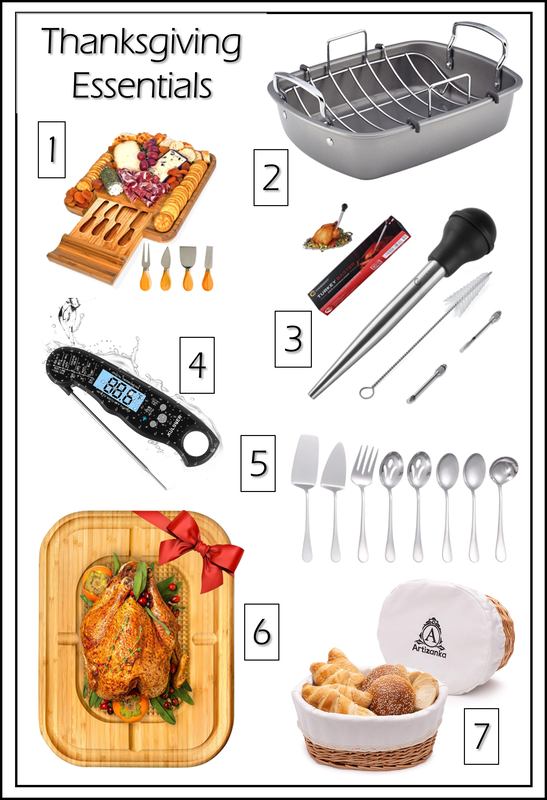

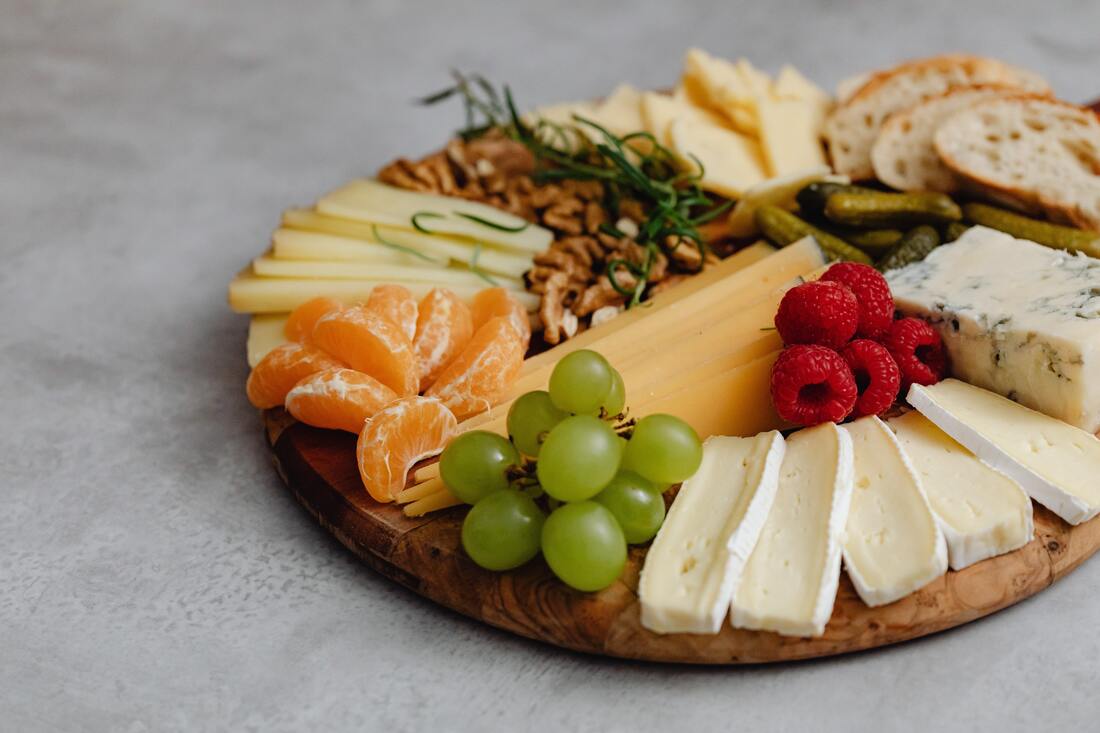
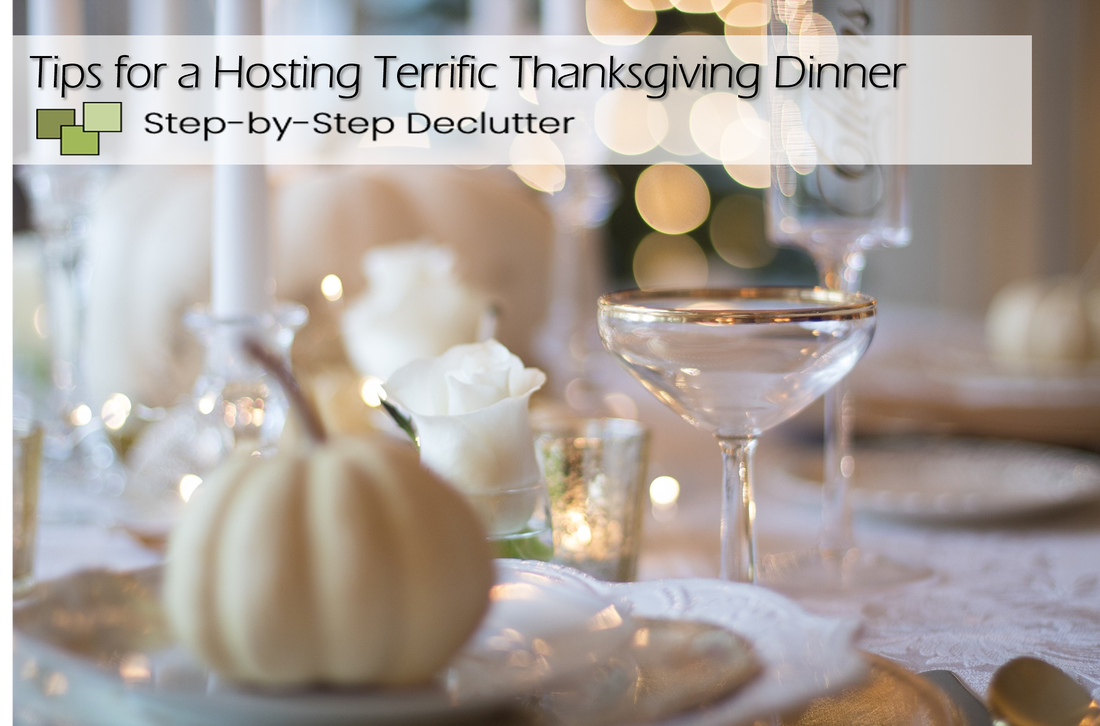






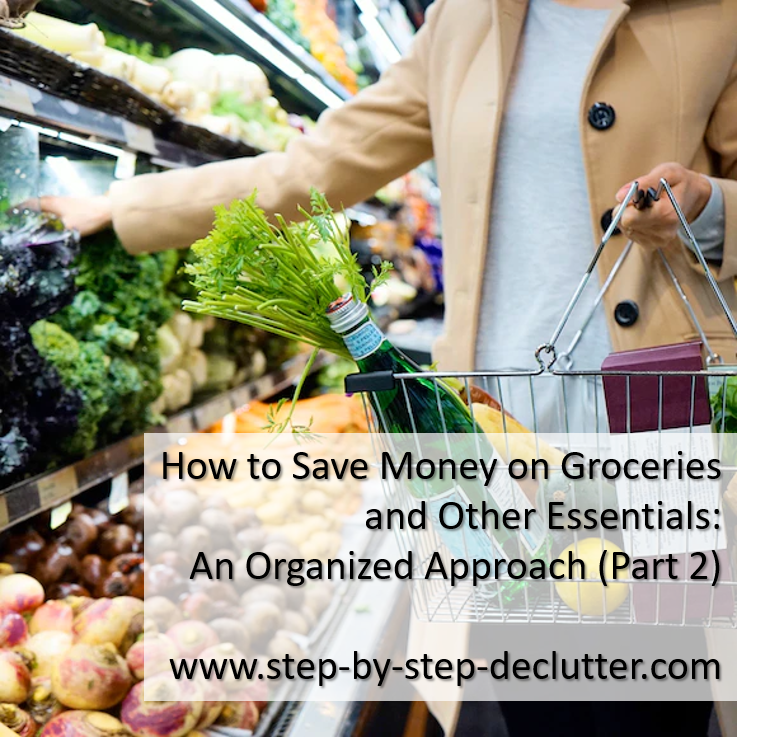







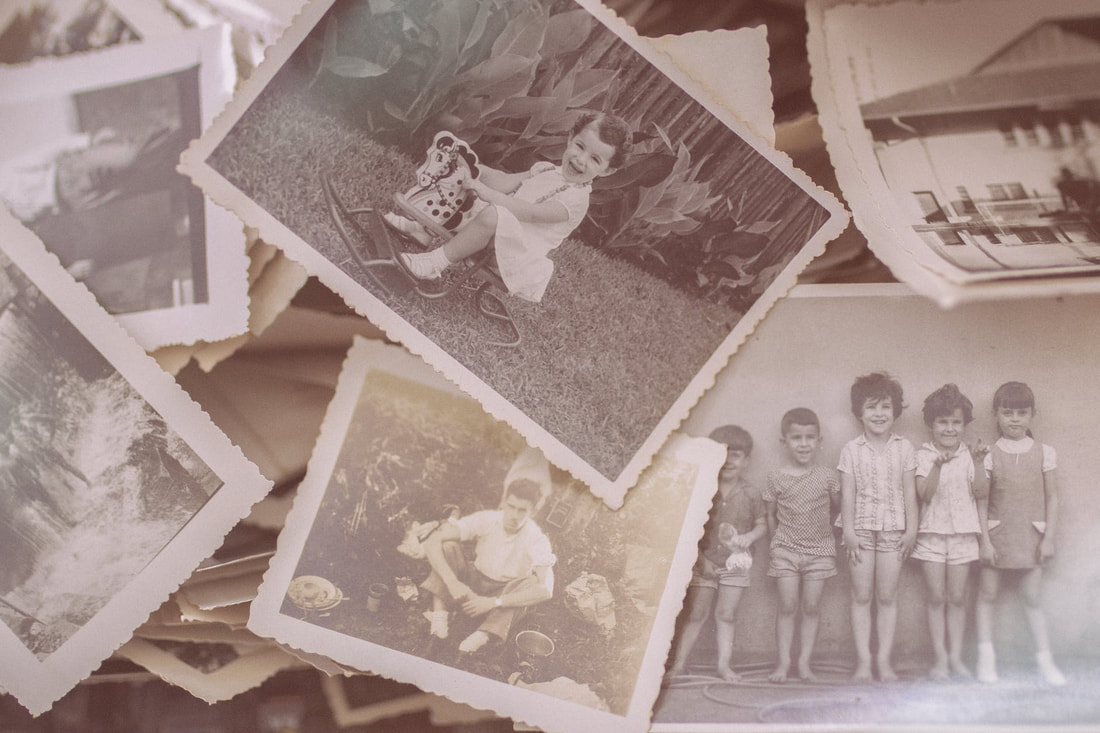

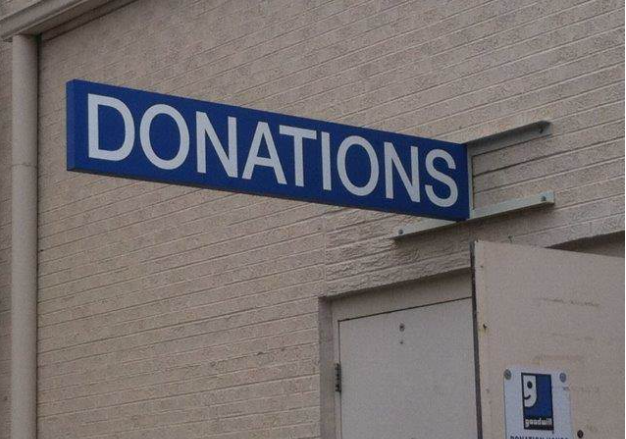
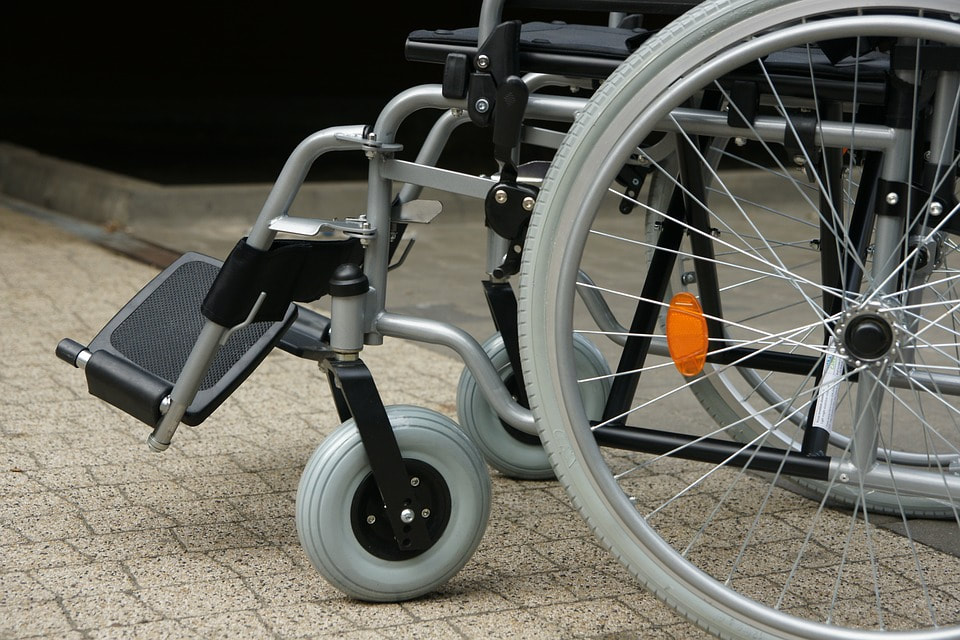



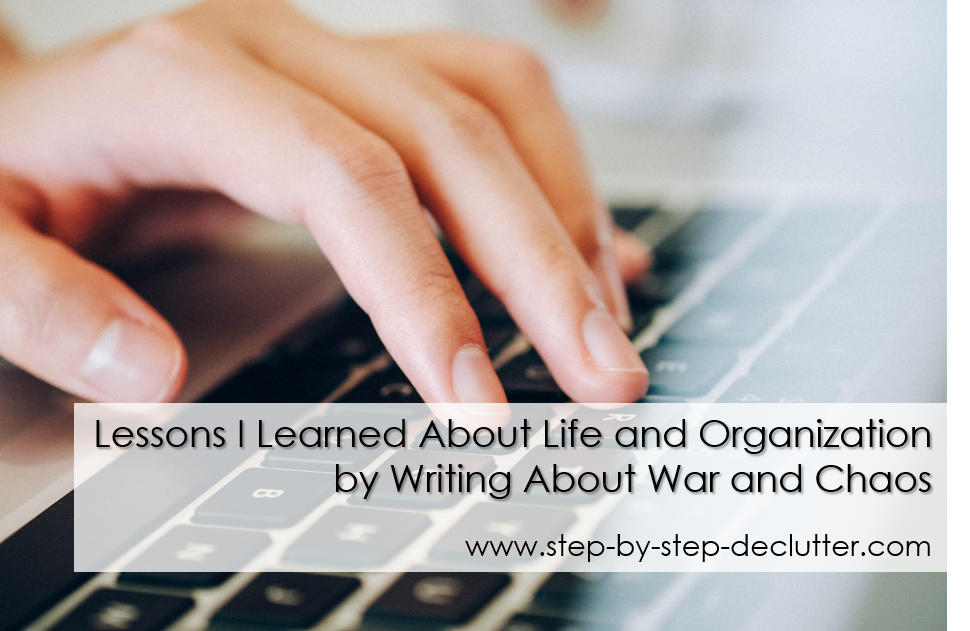
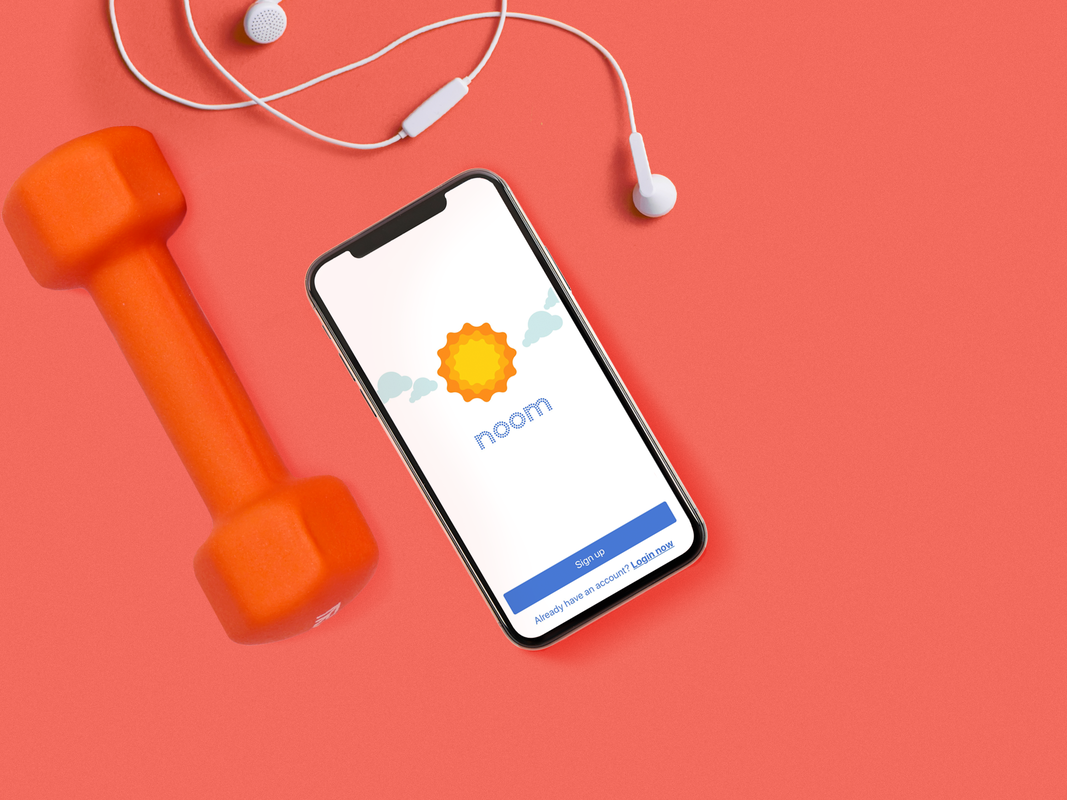

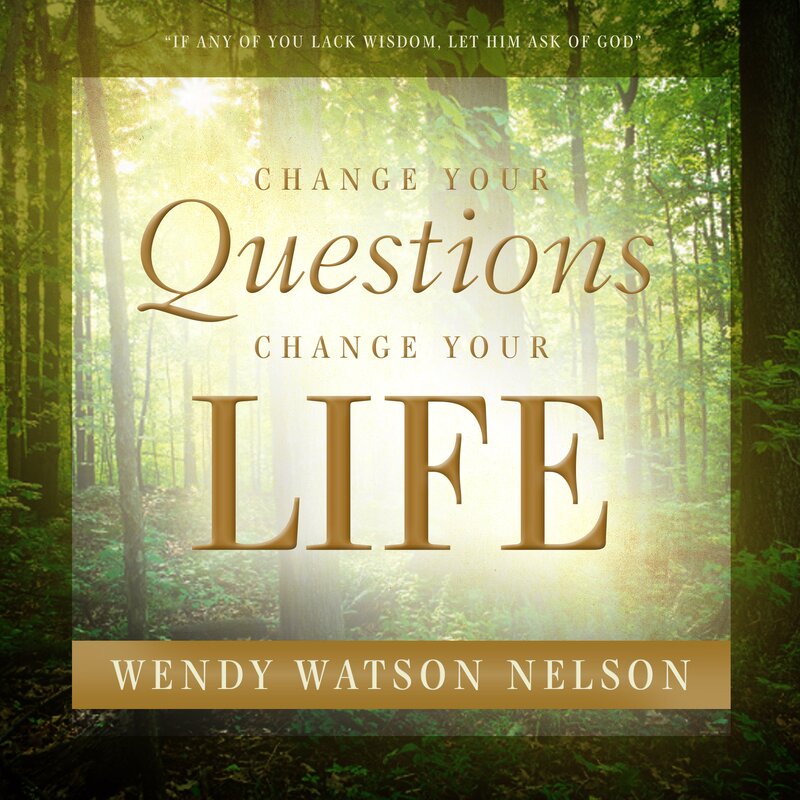



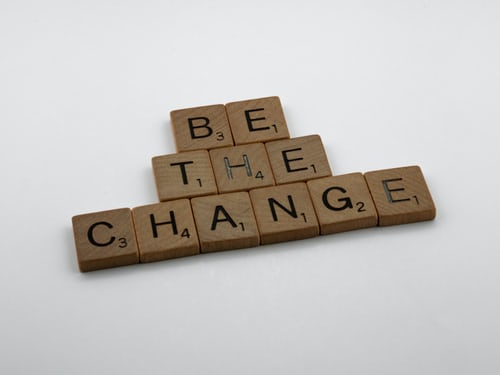
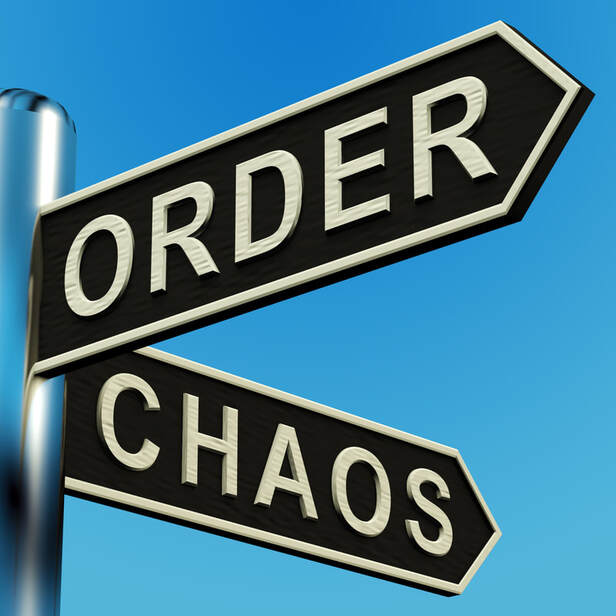

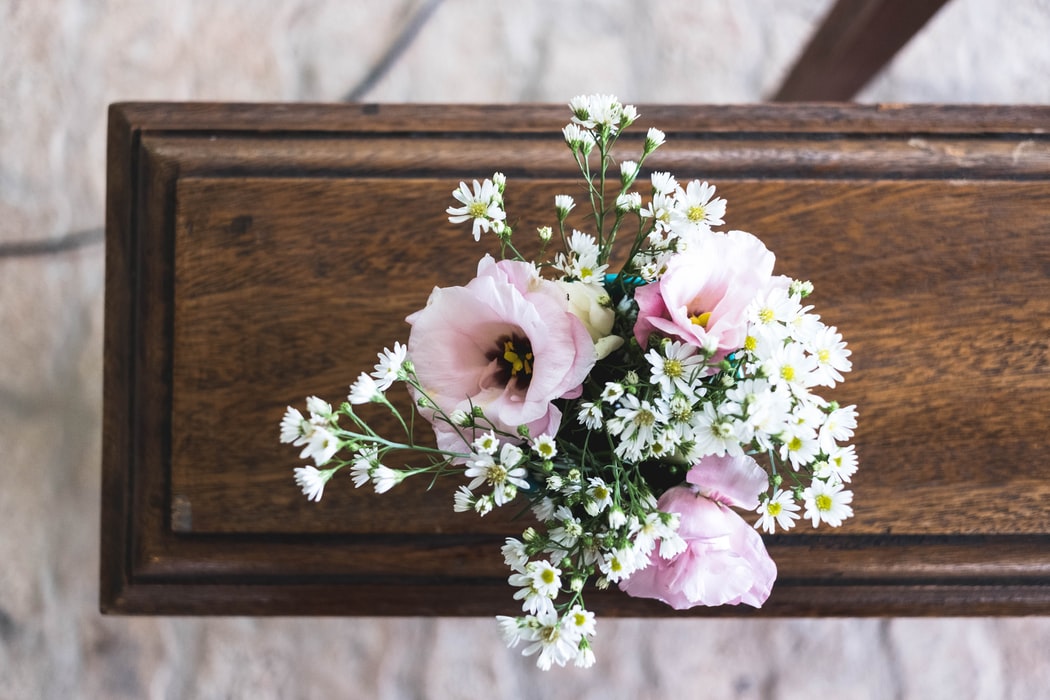
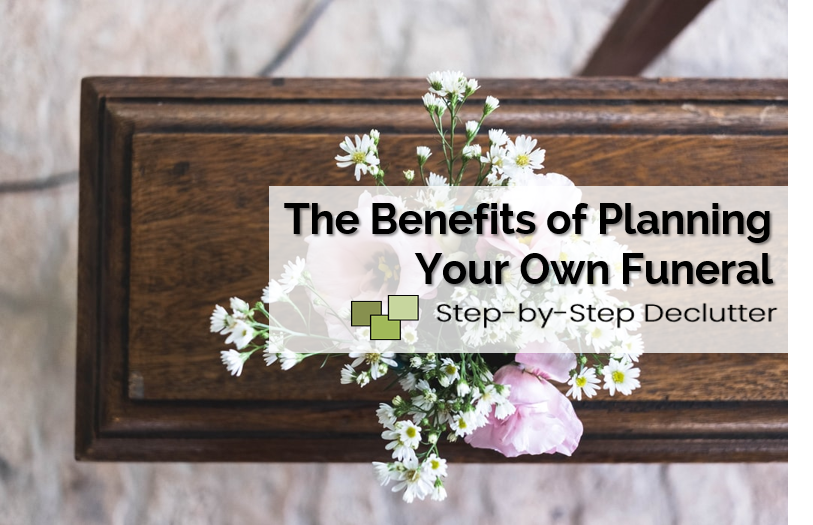

 RSS Feed
RSS Feed